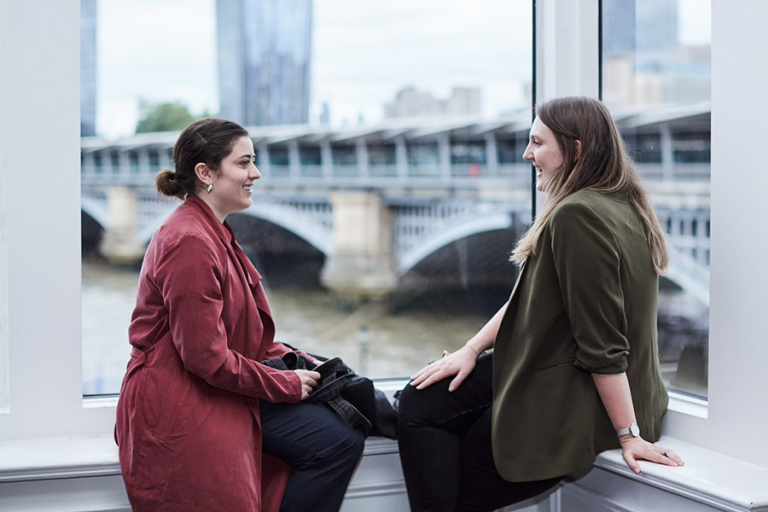This guide is aimed at helping you maintain your wellbeing and gives you tips to balance your routine of hybrid working.

More information on the steps UCL is taking to improve the psychological health and wellbeing of staff can be found in the Staff Mental Health and Wellbeing Plan. Below are some proactive steps you can take to maintain your wellbeing.
Maintaining your physical energy
It can be hard to create healthy habits, whether you’re working on-site or not, but there are simple things you can do to support your wellbeing.
- Think about how you can bring physical activity into your routine. You may want to have short bursts of exercise throughout the day or have a longer activity once a day.
- Use your lunch time to go for a walk - whether you are working at home or on-site, even 10 minutes of exercise and fresh air can help reinvigorate the spirits.
- Join an online workout to exercise with other people – this can help you stay motivated and connected with others.
- Being physically active may just mean that you get up and stretch every hour. The UCL hour supports this particularly between meetings.
Eat well
With hybrid working, it can be challenging to develop a routine when it comes to eating habits, as your daily routine when working on-site is likely to be different to when working remotely.
- It can be helpful for some people to eat regularly and smaller portions throughout the day, instead of a large lunch and dinner, to help your blood sugar levels. Check out Mind's guide to food and mood for more information.
- Build food breaks into your day. Pause what you are doing to eat to avoid mindless snacking.
- Keep a glass of water on your desk to stay hydrated.
- You don't have to change your whole diet; even small changes can help and feel more manageable.
Sleep
Try to keep to your usual sleep routine. Create a bedtime ritual that will prepare your body and mind for sleep. This can be having a bath, reading a book, meditating or journaling.
Work-life balance
Whatever your circumstances, here are some tips to help you maintain a work-life balance:
Create a daily routine
Having routines can help you get into the right frame of mind for a working day and mark the start and the end of work, whether you work on-site or from home. This may be a quick workout, setting up your desk or writing a to-do list, whatever works for you and your work set-up that day.
Create some mini breaks in your day
When working on-site, we often pause our work to have a chat with a colleague or walk to a meeting. Try to create mini breaks in your day where you focus on a non-work activity for 5-10 minutes. The Pomodoro technique can help you stay productive by scheduling short bursts of focused work followed by regular breaks.
Ensure you finish work timely
When working on-site, we often have a natural cut-off time for when to stop working, e.g., to catch a train or start the commute back home. When working from home, try to establish a cut-off time for work as well, to make sure you can make the most of your evenings.
Wellbeing resources
The section below contains a selection of helpful advice and guidance for protecting your wellbeing.
Silvercloud (Cognitive Behaviour Therapy platform)
Learn ways to address stress, anxiety and depression available via our Employee Assistance Programme: Staff Support Service
Employee Assistance Programme: Staff Support Service
To support mental health and wellbeing of UCL community, we are working with our Employee Assistance Partner, who offer a range of telephone and online services
- Wellbeing at UCL
To keep up to date with wellbeing news, you can visit the Being Well pages and sign up to the monthly Workplace Wellbeing newsletter.
Mental Health and Wellbeing Guide from Mind
For more information on mental health and wellbeing visit the mental health and wellbeing guide from Mind.
Care First Wellbeing Webinars
Care First, UCL’s Employee Assistance Programme provider, offer daily webinars, useful articles and access to emotional and practical support on the Care First website. UCL employees can log in with username: uclstaff and password: bentham.
- Equality and network
Hybrid working affects everyone differently, and we want to ensure our staff are as connected with their communities as possible. On the Equality areas pages, you can find support for staff as well as managers on various subjects, including disability, race, gender, sexual orientation, and religion. UCL also has various Staff Equalities Networks, open to all staff, where people with shared identities and background can connect with colleagues.
External resources for staff
UCL have arranged a subscription to a variety of external resources, which staff can access for free using their UCL credentials, including AdvanceHE, Harvard Business Review and Times Higher Education. A full list of resources can be found in Library Services, or the Human Resources pages.
 Close
Close

